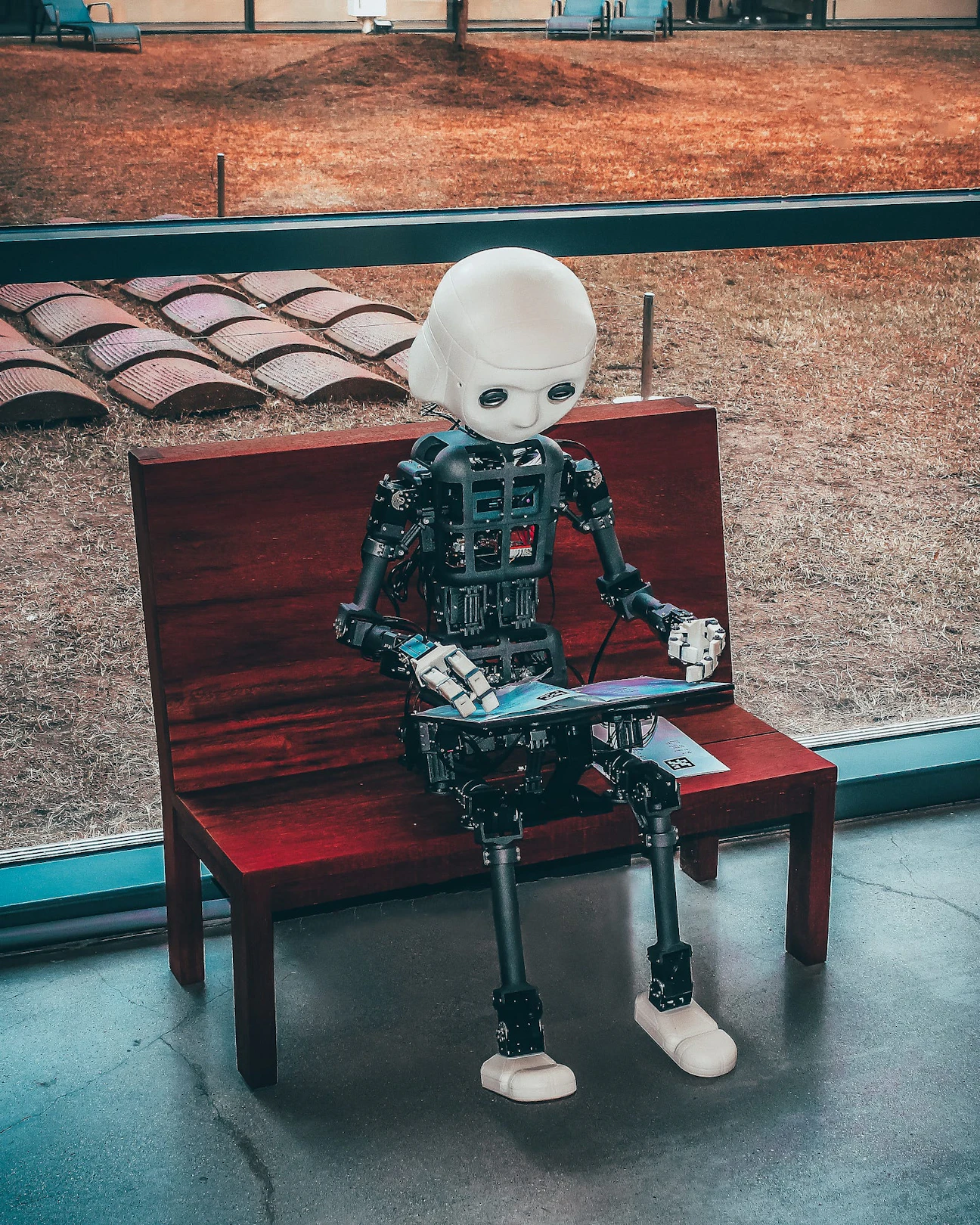For centuries, the divide between the educated and uneducated has been the invisible line separating opportunity from hardship and progress from stagnation. But we're entering a new era where the divide won't be based on who can read and write but who can understand and leverage artificial intelligence.Shortly, the real gap will be between the AI literate and the AI illiterate.
This gap will determine the difference between those who are left behind and those who thrive. For humans, it's the new wealth chasm: on the right side of AI knowledge lies more opportunity, better decision-making, and even financial success. Those left in the dark are doomed to struggle.

AI Literacy: The Key to Power and WealthLet's face it—AI is already woven into the fabric of our lives. From search engines to recommendations on Netflix, ads popping up on social media to job offers coming to you—AI is everywhere. But knowing how it works and how to manipulate it? That's where the magic takes place.Those who are AI literate—who understand algorithms, know how to feed the correct data into the machine, and understand how to harness the power of AI tools—will be at an advantage.
They will make smarter financial decisions, run their businesses more effectively, and creatively seek ways to automate tasks and innovate. They will create wealth from opportunity because they understand the invisible forces shaping markets and decisions.
AI Illiteracy: The New Poverty Trap
Now, turn to the other side of the coin. If you have no notion of what goes on behind the doors of AI, then you are lagging and at a distinct disadvantage. From finding a job to consumerism, everything in modern life is dictated by algorithms. If you're AI-illiterate, you won't know when the system works against you, silently pigeonholing you into categories based on incomplete or biased data.In addition, the AI illiterate will be caught in a vicious cycle—using tools without understanding their inner mechanisms, making decisions without the insight AI has to offer, and being outrun by AI-literate competitors. It's like showing up to run a marathon and not knowing how. Sure, you're on the track, but you're not even aware that you're losing the race until it's over.
The AI-Literate Workforce:
A New Economic EliteIn the workplace, AI literacy will be the new gold standard. Picture two workers—one who knows how to use AI to make processes more streamlined, to predict trends, and to automate menial tasks, and the other who doesn't. It's not hard to guess who's getting the promotion, the higher salary, and the better job security.Companies will value employees who can understand and use AI to boost efficiency and innovation in the future. Workers of the future will become the backbone of successful companies, and leveraging AI will make them indispensable. The rest? They may struggle to keep up in an economy where human-only work is fast becoming obsolete.
AI and Wealth Inequality:
The Great DivideThis isn't just about individual job success or failure. The transition in AI literacy will remake entire economies. We will witness a new class division: those who can build, use, and prosper from AI and those who will get left behind. And that's where the real danger lies.If AI illiteracy becomes widespread, we are going to see the economic gap widen like never before. It will be not only about access to education and capital but also about who understands the inner workings of the global mechanism.
The rich will become richer, not because they have money but because they know how to use Artificial Intelligence to multiply wealth. The poor will be left farther behind, not simply because of a lack of resources but also because they lack the knowledge to try and compete.
Why AI Literacy Matters for All
That is a future that is not for coders and data scientists alone; it is for all. Whether you are an entrepreneur, a freelancer, a graduate student, or a freshman, AI literacy will at least be as basic a requirement as knowing the Internet today. If you don't speak the language of algorithms and don't know how data drives decisions, you will surely find yourself out of luck and locked out of the opportunity.
Think of AI literacy as the new basic education: those who learn it thrive, and those who don't risk falling into the poverty trap.How to Get AI LiterateThe good news is that you don't need to be a computer genius to become AI literate. It starts with awareness—knowing that AI is already a significant part of your life and that learning how it works is crucial.
From there, it's about picking up the skills—whether learning to code, understanding data science, or even just grasping how algorithms influence the systems you interact with daily.It's crucial to start your AI literacy journey now, as the gap between the AI literate and the AI illiterate is rapidly widening. In a few years, it might be too late for many to catch up.The Future Is
AI Literacy—Don't Get Left Behind
The world is moving fast, and the gap between AI-literate and AI-illiterate will soon be as profound as the gap between those who have a college education and those who have never seen the inside of a school. It will determine who gets access to wealth, power, and opportunity and who's left outside, looking in.The question is not if you need to become AI literate but when. The answer is now. In the future, it won't be about who can read and write but about who can understand, leverage, and thrive with AI. That's the difference between winning the future or getting left behind.
My experience with artificial intelligence (AI) is extensive. I have been trained on a massive dataset of text and code, and I can perform many kinds of tasks related to AI, including:
• Natural language processing (NLP): I can understand and generate human language, including text, speech, and translation.
• Machine learning (ML): I can learn from data and improve my performance over time without being explicitly programmed.
• Computer vision: I can recognize and classify objects in images and videos.• Code generation: I can generate code in various programming languages.I have been used in a variety of applications, including:
• Search engines: I help search engines understand and rank web pages.• Social media: I help social media platforms to recommend content to users and to identify and remove harmful content.
• Customer service: I help customer service teams to answer customer questions and resolve issues quickly and efficiently.
• Product development: I help product teams to understand customer needs and to develop new products and features.
Overall, I have a deep understanding of AI and can apply my knowledge to a wide range of tasks.Here is a note on my experience with AI:
AI is a rapidly evolving field, and I am constantly learning new things. I am excited about AI's potential to improve people's lives in many ways, from developing new medical treatments to creating more efficient energy sources.
I am committed to using my knowledge and abilities to help people in any way that I can.AI is one of the most important technologies of our time. It has the potential to revolutionize many aspects of our lives, from how we work to how we interact with the world around us.
However, it is essential to use AI responsibly and ethically. We must ensure that AI is used for good, not harm.AI can be a powerful force for positive change in the world. I am excited to be a part of this field and to help shape its future.

